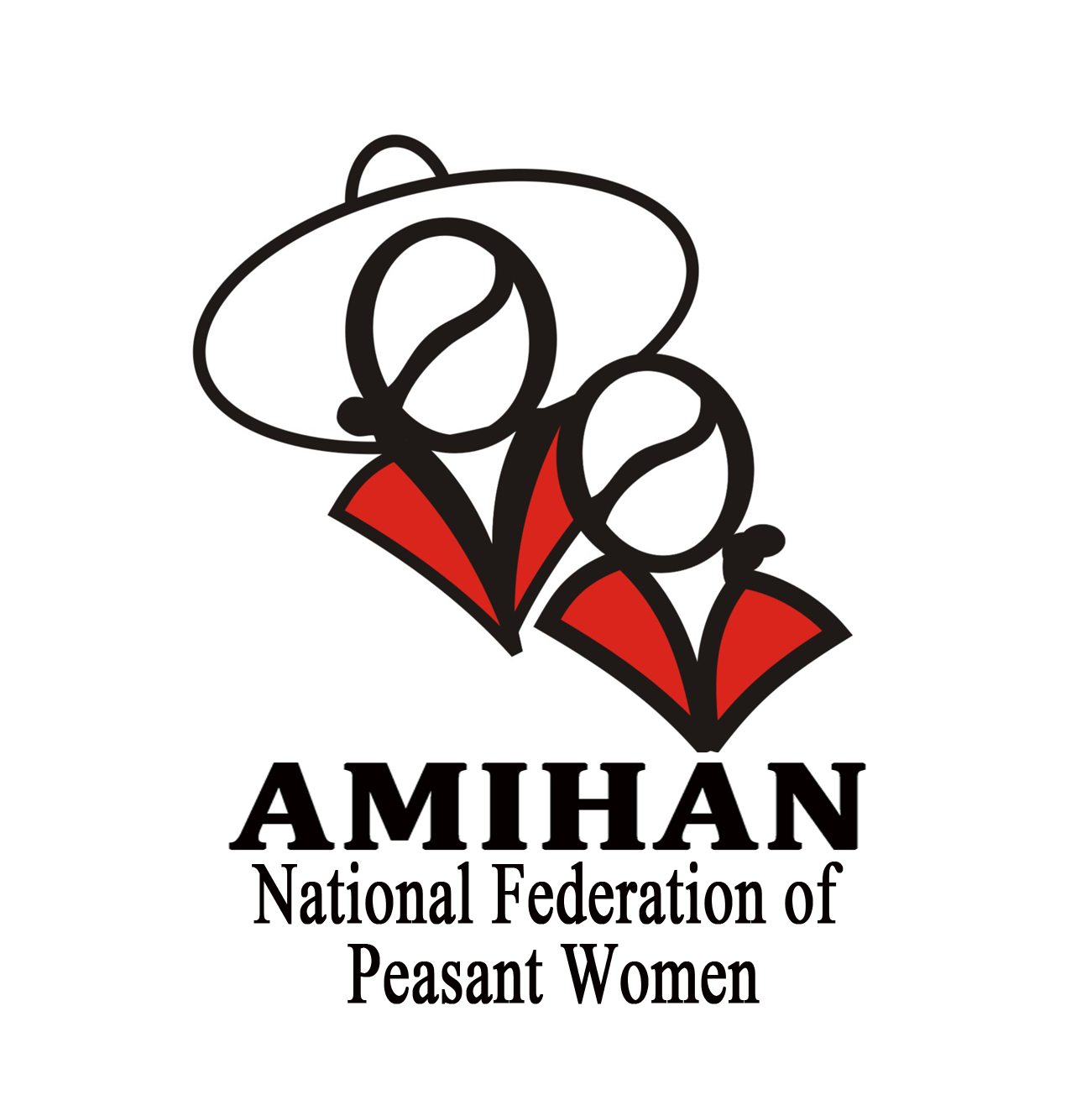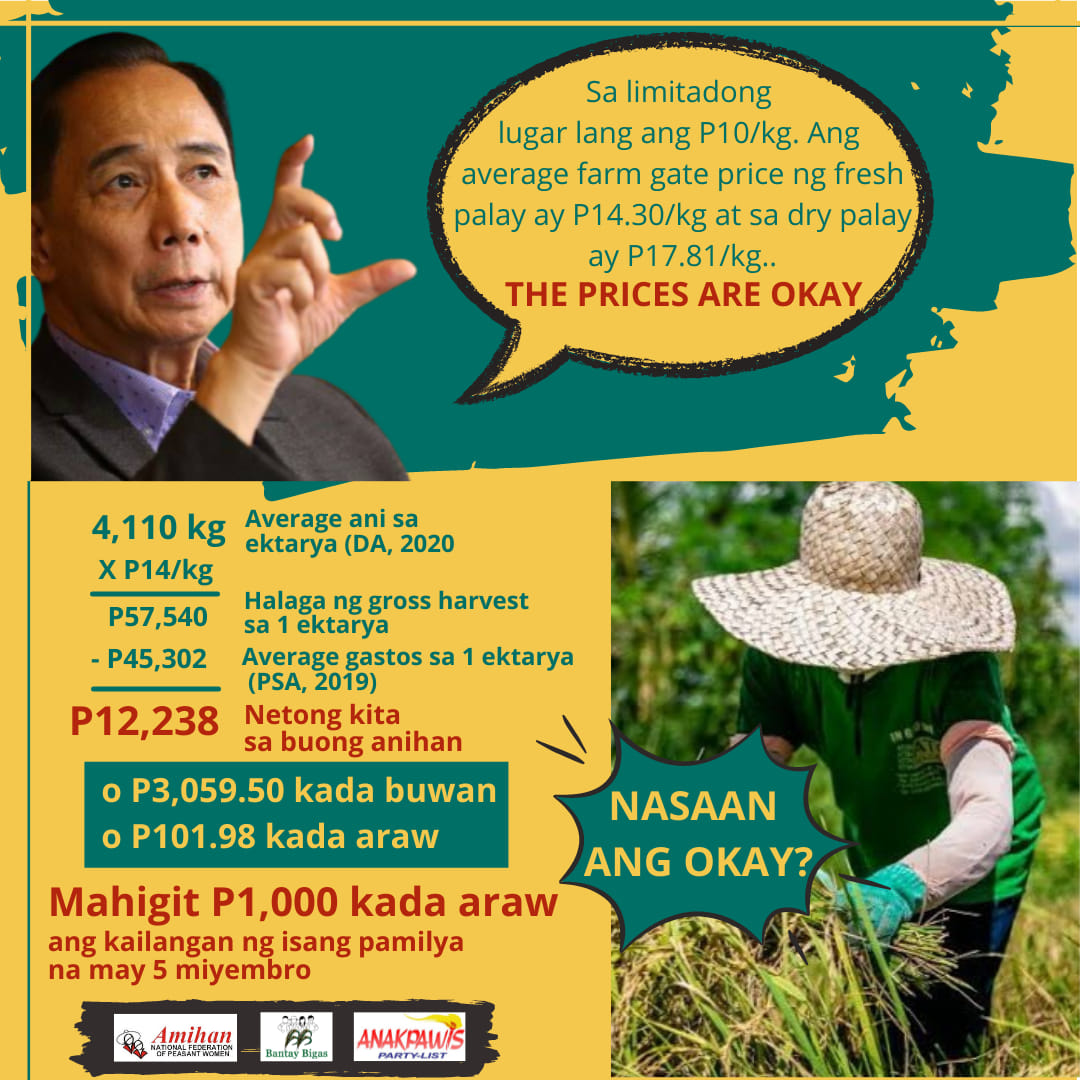“Agriculture Secretary William Dar’s statement that the P10 per kilo farm gate price of palay is an exaggeration and the prevailing prices “are okay” undermines the relentless woes of rice farmers who have been suffering from the depressed farm gate prices since the enactment of the Duterte government’s Rice Liberalization Law,” Amihan National Federation of Peasant Women and Anakpawis Partylist secretary general Cathy Estavillo said.
“If your data does not reflect the actual conditions of our rice farmers then you have to go out of your air conditioned office and go to the rice farming communities to witness their agony,” Estavillo added.
The groups together with rice watch group Bantay Bigas noted that at P10 per kilo of palay, a farmer tilling a hectare of land will have a deficit of P4,202 based on DA’s 2020 data of 4.11 MT average yield per hectare and Philippine Statistics Authority’s 2019 data of P45,302 per hectare average cost of palay production.
“Mas mataas pa nga ngayon ang gastos dahil tumaas ang presyo ng abono at pestisidyo. Kahit pa sabihing P14-P17 kada kilo mabili ang presyo ng palay, papatak sa P3,000-P6,000 lang kada buwan o P100-P200 kada araw ang kita ng magsasaka. Kulang na kulang sa mahigit P1,000 kada araw na kailangan ng isang pamilya para mabuhay nang marangal,” Estavillo stressed.
“DA and Secretary Dar’s tactic of invalidating the farmers’ actual experiences and suffering is an attempt to deny and cover-up the damages caused by the liberalized rice industry,” Estavillo said.
The groups reiterated their demand to raise the farm gate prices of palay to at least P20 per kilo, and provide rice farmers with P15,000 production subsidy, to offset rising debts and continue the wheels of production.
“Various sectors should intervene against the catastrophic trend of depressed palay farm gate prices. If we allow our food frontliners to go bankrupt and be displaced from production, it is certain that we are all heading towards hunger and import food dependence. We urge everyone to act against further liberalizing the rice sector, and instead, push for a nationalist and democratic program to protect the Philippine rice industry,” the groups ended. ###

